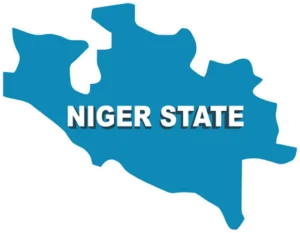N4.8 billion WhatsApp monitoring appropriation: Misplacement of priorities detrimental to addressing Nigeria’s pressing needs
Realities in Nigeria have become so clustered in the web of myriads of disturbances, that the prevailing conditions call for depths of rational appeals of giving priorities to strategic moves in every decision by constituted authorities with well calculated measures. It is however apparent that issues of misplacement of priorities have not ceased to show forth on the part of the government, despite the reflections of realities posing, by all indications, the demands for such necessity. It is apparent the weighing of deployment of energy and resources to some subjects are lagging in the weight of attention required to fix the gaps around such subjects. Hence, while some pressing matters receive weighty attention more than is needed, it is apparent some which deserve stronger attention – human, intelligence, funds – have been left at the mercy of insufficient provisions, and as such, starved of the required attention.
Particularly, the misplacement of funds and human resources away from pressing issues of far reaching impacts with ravaging disturbances to those of lesser impacts, have brought situations where matters demanding more urgent attention have been left to linger beyond tolerable limit to break elastic joints in springing forth offshoots of strings of destabilising elements further compounding discordant forces in the Country. Hence, the mere reverberating resonance of the reproductive impacts of the metabiotic strings demanding urgent attention but left to linger in the force of time, have created ambience for the clustering of strings of disturbances which are the background of myriad of troubles in the Country.
It has become inarguable that matters of the wobbling economy and insecurity in the Country, have become so pronounced that the interwoven dimensions of the outcomes have assumed metabiotic character which are the ground for myriads of discomforts in the Country. It however, observable that the lopsided disposition of the Government of Nigeria in the administrative patterns of addressing matters based on priorities, has continued to register gaps with outcomes of larger degree of failures than successes in the approach to addressing the challenges bewildering the Country.
Recently, echoes of castigations over the proposed spending of N4.8billion for monitoring WhatsApp messages, phone calls and text messages of Nigerians have been making rounds of computations. Criticisms have greeted the move with some clogs of reservations. The argument could be justifiable from the angle of the far reaching results the said fund would have had in addressing strains in the wobbling Nigeria economy if channeled into more productive use for capital projects which is more pressing for Nigerians who are grappling with the crunches of a crumbling economy.
In reaction, frontline rights group, the Socio-Economic Rights and Accountability Project (SERAP) has, in an open letter dated 14 August, 2021, called on President Muhammadu Buhari “to urgently redirect the proposed spending of N4.8bn of public money to monitor WhatsApp messages, phone calls, and text messages of Nigerians and other people, to pay some of the salaries of striking resident doctors, improve their benefits, as well as improve public healthcare facilities for the sake of poor Nigerians who rely on those facilities, and have nowhere else to turn.” SERAP had also in the letter copied to the Attorney General of the Federation and Minister of Justice, Mr Abukabar Malami (SAN); and the Minister of Finance, Budget and National Planning, Mrs Zainab Ahmed, urged the President “to send to the National Assembly a fresh supplementary appropriation bill, which reflects the redirected budget, for its approval.”
The letter signed by its deputy director,Kolawole Oluwadare, had further read: “Redirecting the proposed spending of N4.8bn would be entirely consistent with your constitutional oath of office, and the letter and spirit of the Nigerian Constitution of 1999 [as amended], as it would promote efficient, honest and legal spending of public money.Redirecting the proposed spending of N4.8bn would also remove the threats to fundamental human rights of Nigerians, and ensure access to quality healthcare for the socially and economically vulnerable people who rely on public hospitals, and have no opportunity for medical treatment elsewhere.Any appropriation law ought to comply with the Nigerian Constitution and the country’s international human rights obligations and commitments. The constitutional oath of office implicitly provides some safeguards on the appropriation and spending of public funds, and imposes a legally binding obligation on public officers to preserve the public money, and not to disburse it except conformably to the Constitution.
“SERAP believes that any proposed spending of public funds should stay within the limits of constitutional responsibilities, and oath of office by public officers, as well as comply with Chapter 2 of the Nigerian Constitution relating to fundamental objectives and directive principles of state policy. The mere threat of mass surveillance, even when secret, coupled with the lack of remedy, can constitute an interference with human rights, including the rights to privacy, freedom of expression, peaceful assembly and association.
“The proposed spending of N4.8bn of public funds as contained in the Supplementary Appropriation Act, which you signed last month would give rise to serious violations of the human rights of Nigerians and other people, as it would grant free rein to government agencies to conduct mass surveillance of communications of people. The proposed spending also fails to meet the requirements of public interests, legality, necessity and proportionality. Additionally, the lack of any safeguards against discriminatory decision-making, and access to an effective remedy shows the grave threats it poses to constitutionally and internationally recognized human rights.
“SERAP is concerned that the proposed spending to monitor WhatsApp messages, phone calls and text messages of Nigerians and other people is inconsistent and incompatible with the Nigerian Constitution and the country’s international human rights obligations. Specifically, Section 37 of the Nigerian Constitution, and Article 17 of the International Covenant on Civil and Political Rights, to which the country is a state party, provide for the right to freedom from arbitrary or unlawful interference with privacy and correspondence, communications and private data. Section 39 of the Nigerian Constitution and Article 19 of the Covenant also protect everyone’s right to hold opinions without interference and to seek, receive and impart information and ideas of all kinds, regardless of frontiers and through any media.
“SERAP wishes to stress your government’s obligations under article 9 of the African Charter on Human and Peoples’ Rights, and article 13 of the UN Convention against Corruption both of which Nigeria has ratified. Similarly, the UN General Assembly has condemned unlawful or arbitrary surveillance and interception of communications as ‘highly intrusive acts’ that interfere with fundamental human rights (see General Assembly resolutions 68/167 and 71/199). SERAP is concerned that the powers to conduct arbitrary, abusive or unlawful surveillance of communications may also be used to target political figures and activists, journalists and others in the discharge of their lawful activities, especially given the growing repression of civic space, suspension of Twitter, and attacks on freedom of expression and media freedom in the country.
“Privacy and expression are intertwined in the digital age, with online privacy serving as a gateway to secure exercise of the freedom of opinion and expression. Therefore, targets of surveillance would suffer interference with their rights to privacy and freedom of opinion and expression whether the effort to monitor is successful or not.Interference with privacy through targeted surveillance is designed to repress the exercise of the right to freedom of expression. Surveillance of journalists, activists, opposition figures, critics and others simply exercising their rights to freedom of expression – would lead to violations of other human rights such as the rights to liberty and freedom from torture and other ill-treatment. Targeted surveillance creates incentives for self-censorship and directly undermines the ability of journalists and human rights defenders to conduct investigations and build and maintain relationships with sources of information.
“SERAP is concerned about the failure by your government to resolve the strike by the National Association of Resident Doctors (NARD) over pay, insurance benefits and poor facilities, and its effects on poor Nigerians, especially as the country faces a third wave of Coronavirus. According to our information, in July, 2021, you reportedly signed the 2021 supplementary appropriation bill of N983 billion into law. Of the amount, N4.8bn (N4,870,350,000) was allocated to the National Intelligence Agency (NIA) to monitor WhatsApp messages, phone calls and text messages of Nigerians and other people. Of the figure, N1.93 billion was earmarked for ‘WhatsApp Intercept Solution’ and N2.93 billion for ‘Thuraya Interception Solution’ – a communications system used for monitoring voice calls or call-related information, SMS, data traffic, among others.”
The need for the Government of Nigeria to become more rational in its decision with dexterous approach of capitalising deployment of resources – human and economic – to subjects of concern by weight of priorities is imperative. The situations before the Country have become so encumbered with clusters of deep seated disturbances that the multiplicity of forces demanding attention, calls for the depth of composition of intelligence in giving attention to matters with the highest quotient of priority determination.
Hence, setting far reaching standards to establish structures of determinants to weigh matters by importance in determining the chunk of deployment of resources by priorities has become non negotiable. The need therefore to develop intelligent systems to guide the structures of decision making in the Country has become more important than ever. This is essential to shift from the traditional mode of decision making which is more or less informed by whims, caprices and impulsive disposition, which to larger degree are liable to misplacement of priorities and by all means, ill-strategised to address matters according the weight of pressing priorities.
Misappropriation of resources, be it human and economic, are administrative misunderstanding and deficiencies. It is therefore important for custodians of public offices who have been entrusted with the baton of leadership to take decisions on behalf of the people to fulfill same with the highest dexterity of purpose as situation demands, against whimsical dispositions. It is essential for public officers to understand they hold such offices with the trust relayed on them by the populace as leaders supposed to be in the position to take rational decisions in their (populace) best interest. Where the performances of public officers fall below an expression of such expectations, it becomes anti-clockwise to the demands of office and hence a defeat of purpose of same. It is therefore pertinent that the Government shift from the administrative mediocrity ,misplacement of priorities, to face sincerity and dexterity. The deployment of all resources pragmatically on the basis of seasoned calculations of strategies, structured on the systemic patterns of rational decision making processes.




